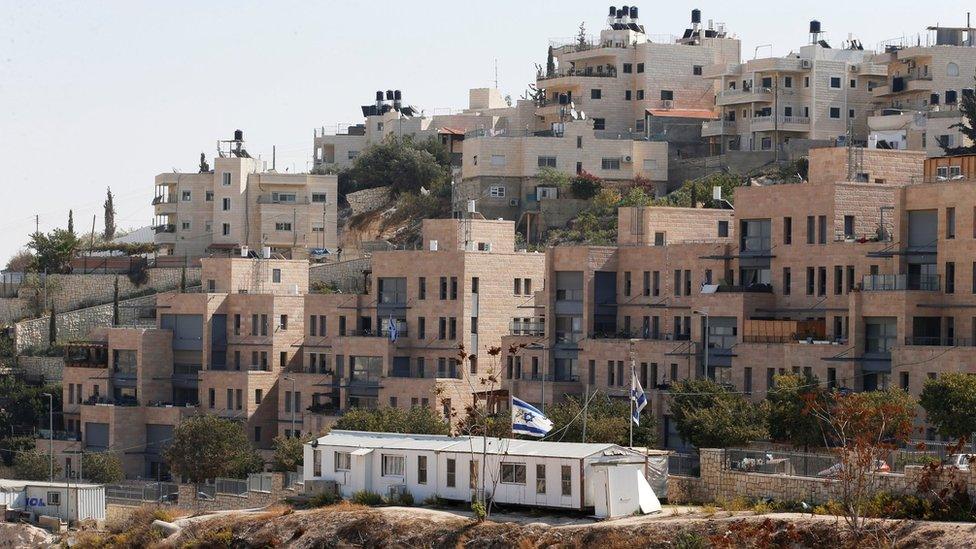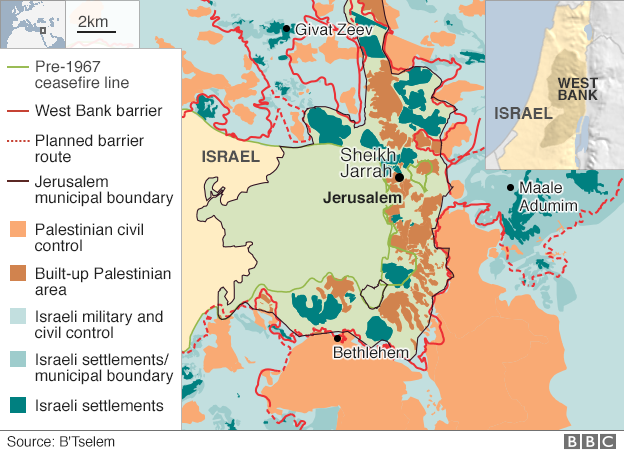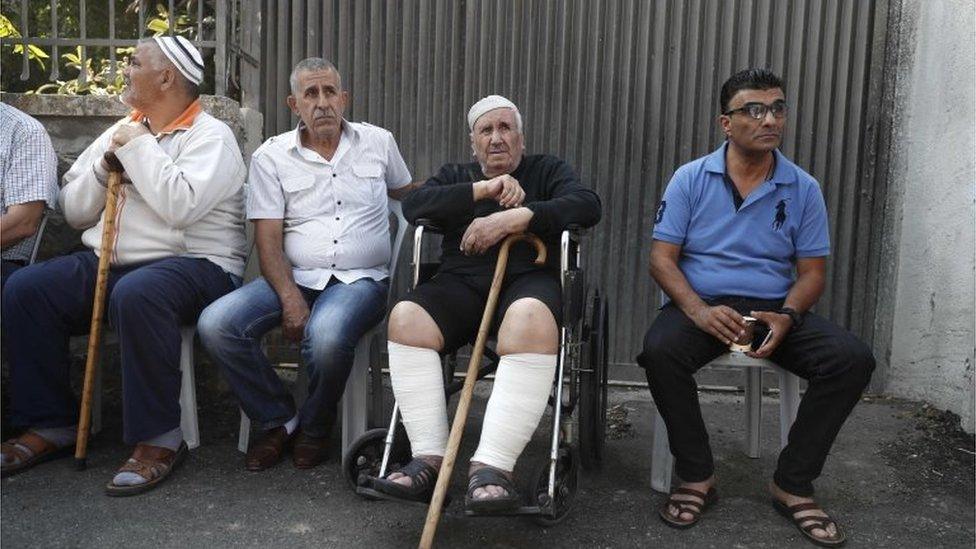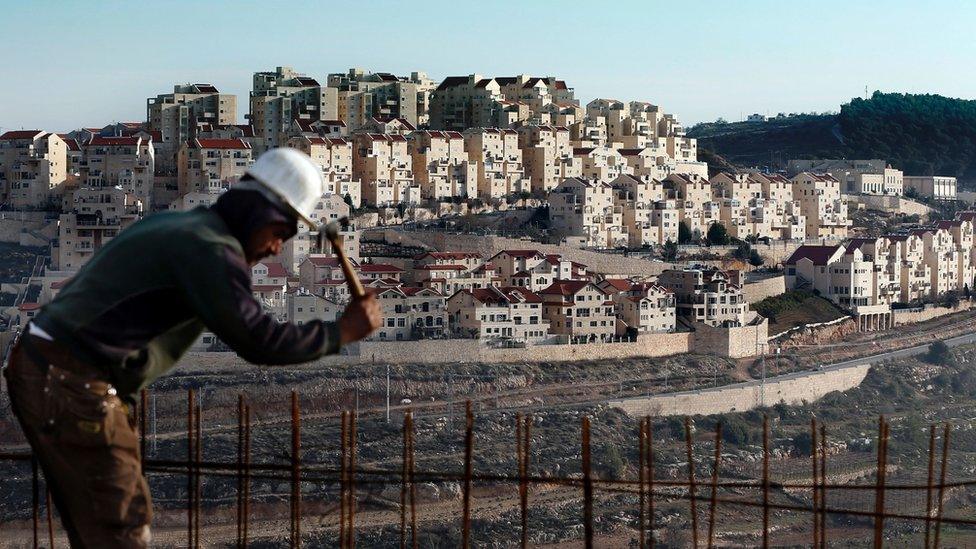Israel approves 176 new settler homes in East Jerusalem
- Published

Nof Zion, seen here in the foreground, is surrounded by homes from Jabal Mukaber
Israeli authorities have approved a major expansion of a Jewish settlement in occupied East Jerusalem.
The Jerusalem municipality issued permits for 176 new housing units in Nof Zion, which is surrounded by the Palestinian district of Jabal Mukaber.
It will almost triple in size, making it the largest settlement inside a Palestinian area of East Jerusalem.
A Palestinian official condemned the move, describing it as a "challenge" to the international community.
Israel has occupied East Jerusalem and the West Bank since the 1967 Middle East war. It annexed East Jerusalem in 1980 in a step that was not recognised by the international community.
About 200,000 Jewish settlers and 370,000 Palestinians currently live in East Jerusalem. The settlements are considered illegal under international law, though Israel disputes this.
Israel regards the whole of Jerusalem as its indivisible capital, while the Palestinians seek East Jerusalem as the capital of a future state.
"We are reunifying Jerusalem with actions on the ground," Jerusalem Mayor Nir Barkat said in a statement announcing the expansion of Nof Zion.

Wasel Abu Youssef, a member of the Palestine Liberation Organisation, told Reuters news agency that the plan was "a challenge to all the calls by the international community" to halt settlement construction.
Despite the issuing of permits, construction at Nof Zion is expected to be delayed because of an ownership dispute between two different companies.
The settlement watchdog Peace Now told AFP news agency that a court case would first have to be resolved.
Last week, Israeli authorities approved the construction of more than 2,600 additional homes in settlements across the West Bank.
That drew criticism from the European Union, which warned that any settlement activity undermined the viability of a two-state solution to the Israeli-Palestinian conflict and the prospect for a lasting peace.
- Published5 September 2017

- Published18 November 2019
